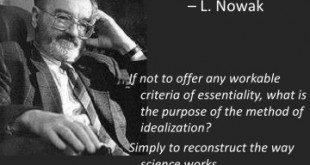[embedded content]
Read More »How to get published in ‘top’ economics journals
How to get published in ‘top’ economics journals By the early 1980s it was already common knowledge among people I hung out with that the only way to get non-crazy macroeconomics published was to wrap sensible assumptions about output and employment in something else, something that involved rational expectations and intertemporal stuff and made the paper respectable. And yes, that was conscious knowledge, which shaped the kinds of papers we wrote. Paul Krugman More or less says it all,...
Read More »Rom i regnet (privat)
Rom i regnet (privat) [embedded content] Till Anna — som fick mig att överleva gymnasieåren på Linnéskolan.
Read More »Do unrealistic economic models explain real-world phenomena?
Do unrealistic economic models explain real-world phenomena? When applying deductivist thinking to economics, neoclassical economists usually set up “as if” models based on a set of tight axiomatic assumptions from which consistent and precise inferences are made. The beauty of this procedure is of course that if the axiomatic premises are true, the conclusions necessarily follow. The snag is that if the models are to be relevant, we also have to argue that their precision and rigour still...
Read More »Uptown funk
[embedded content] [h/t Jeanette Meyer]
Read More »Roman Frydman on the ‘rational expectations’ hoax
Roman Frydman on the ‘rational expectations’ hoax Lynn Parramore: It seems obvious that both fundamentals and psychology matter. Why haven’t economists developed an approach to modeling stock-price movements that incorporates both? Roman Frydman: It took a while to realize that the reason is relatively straightforward. Economists have relied on models that assume away unforeseeable change. As different as they are, rational expectations and behavioral-finance models represent the market...
Read More »Lacrimosa
[embedded content]
Read More »George Washington
Models and the poverty of atomistic behavioural assumptions
Models and the poverty of atomistic behavioural assumptions [embedded content]
Read More »Is macroeconomics for real?
Is macroeconomics for real? Empirically, far from isolating a microeconomic core, real-business-cycle models, as with other representative-agent models, use macroeconomic aggregates for their testing and estimation. Thus, to the degree that such models are successful in explaining empirical phenomena, they point to the ontological centrality of macroeconomic and not to microeconomic entities … At the empirical level, even the new classical representative-agent models are fundamentally...
Read More » Lars P. Syll
Lars P. Syll






